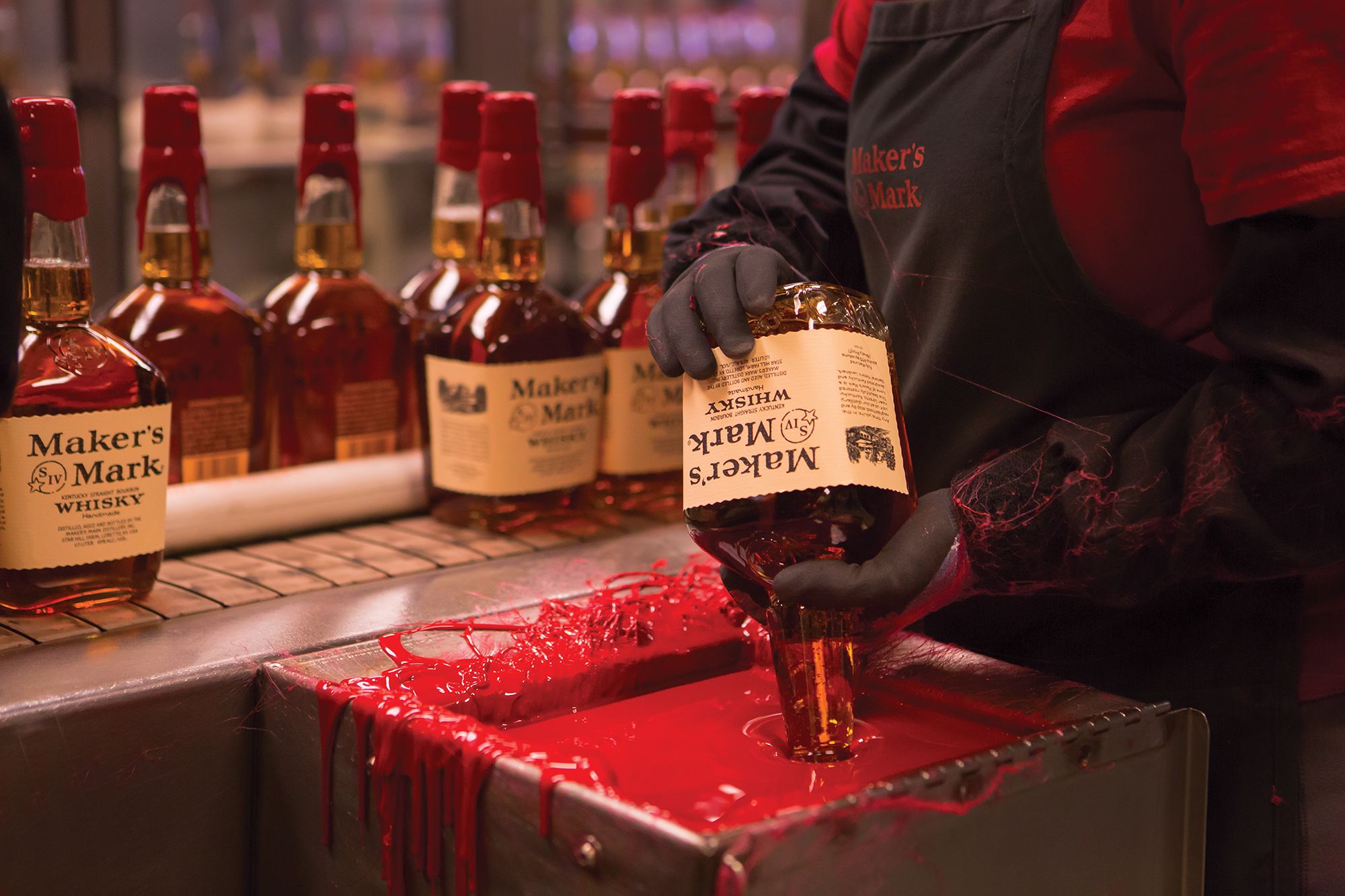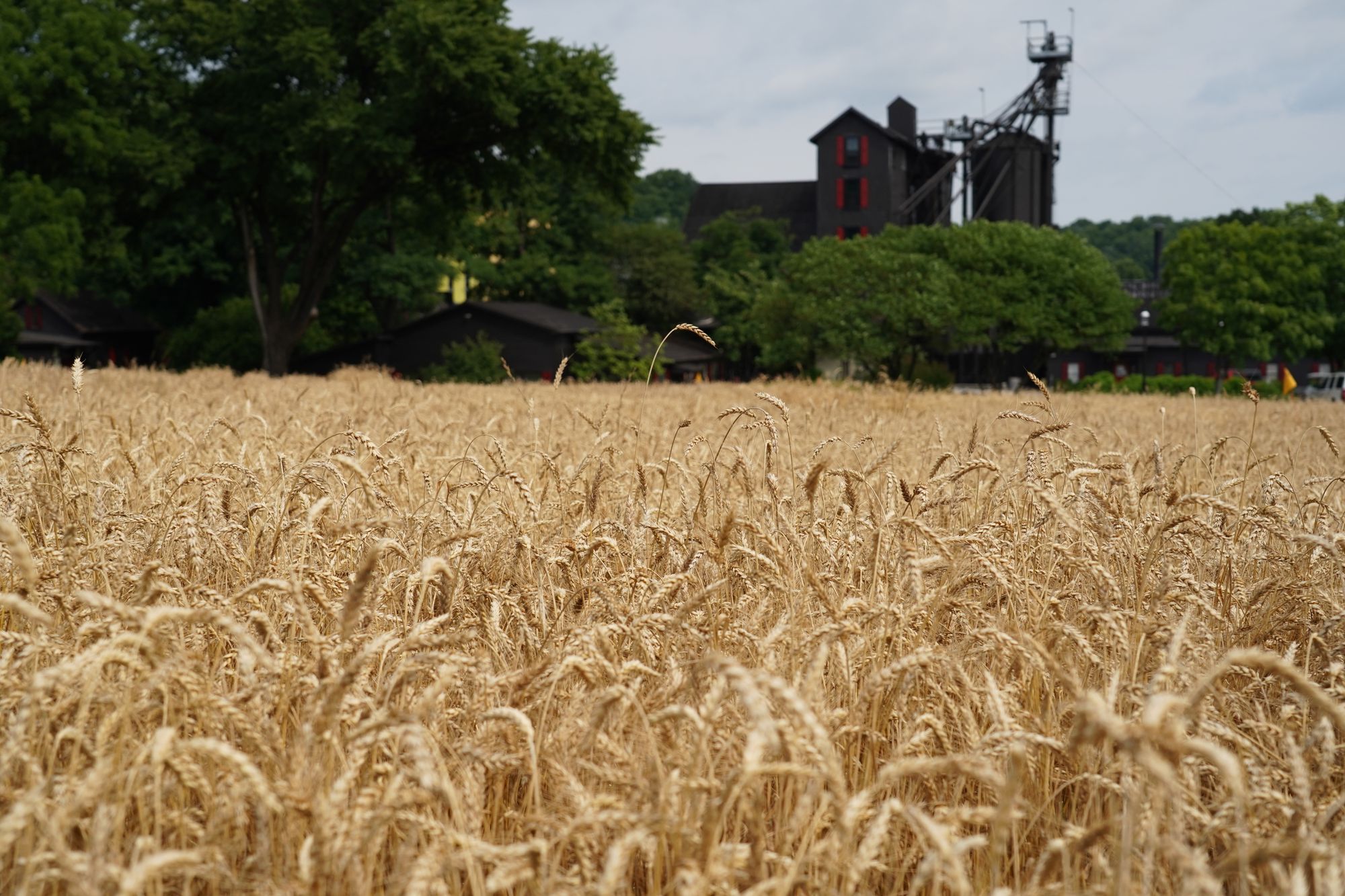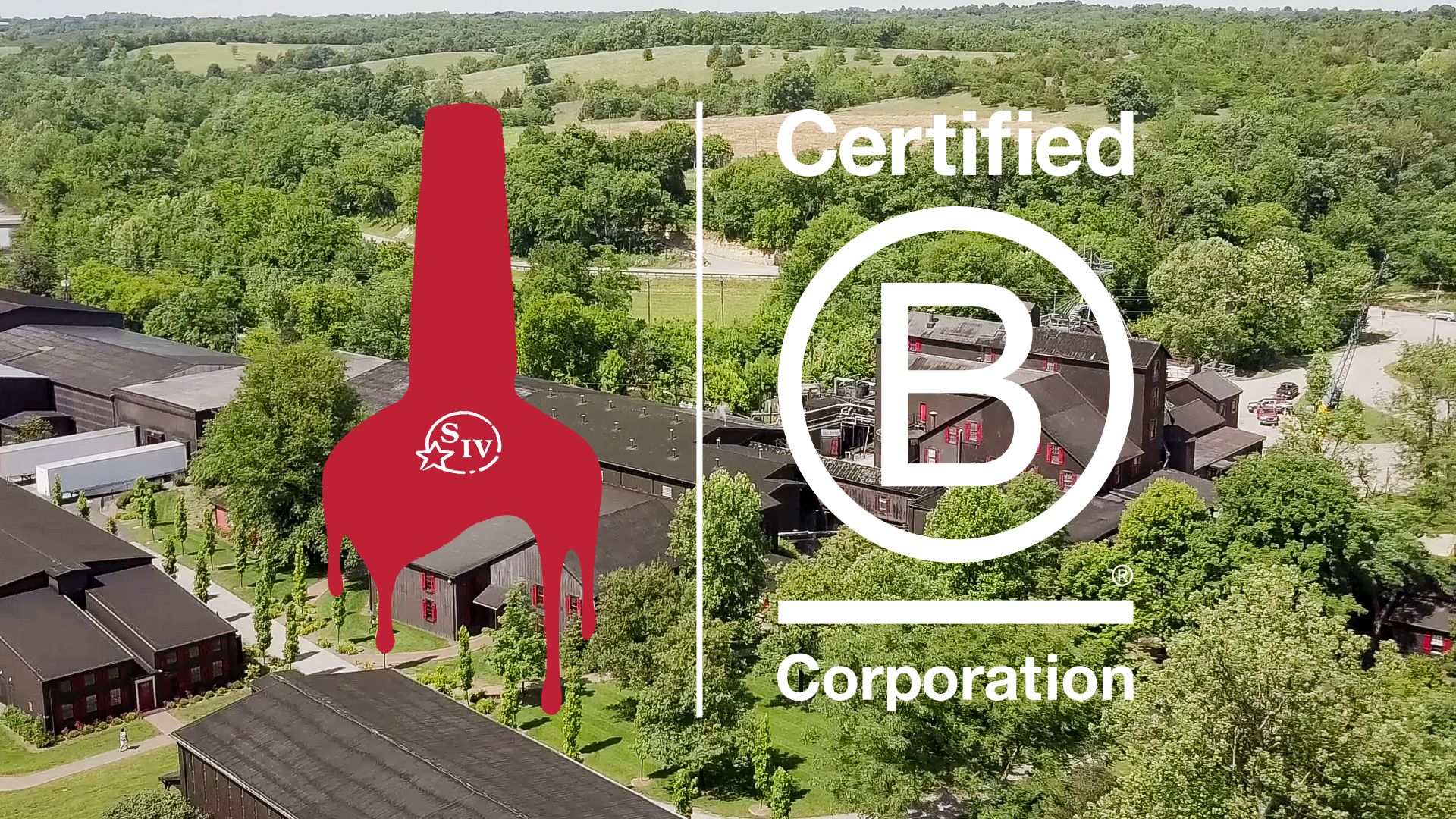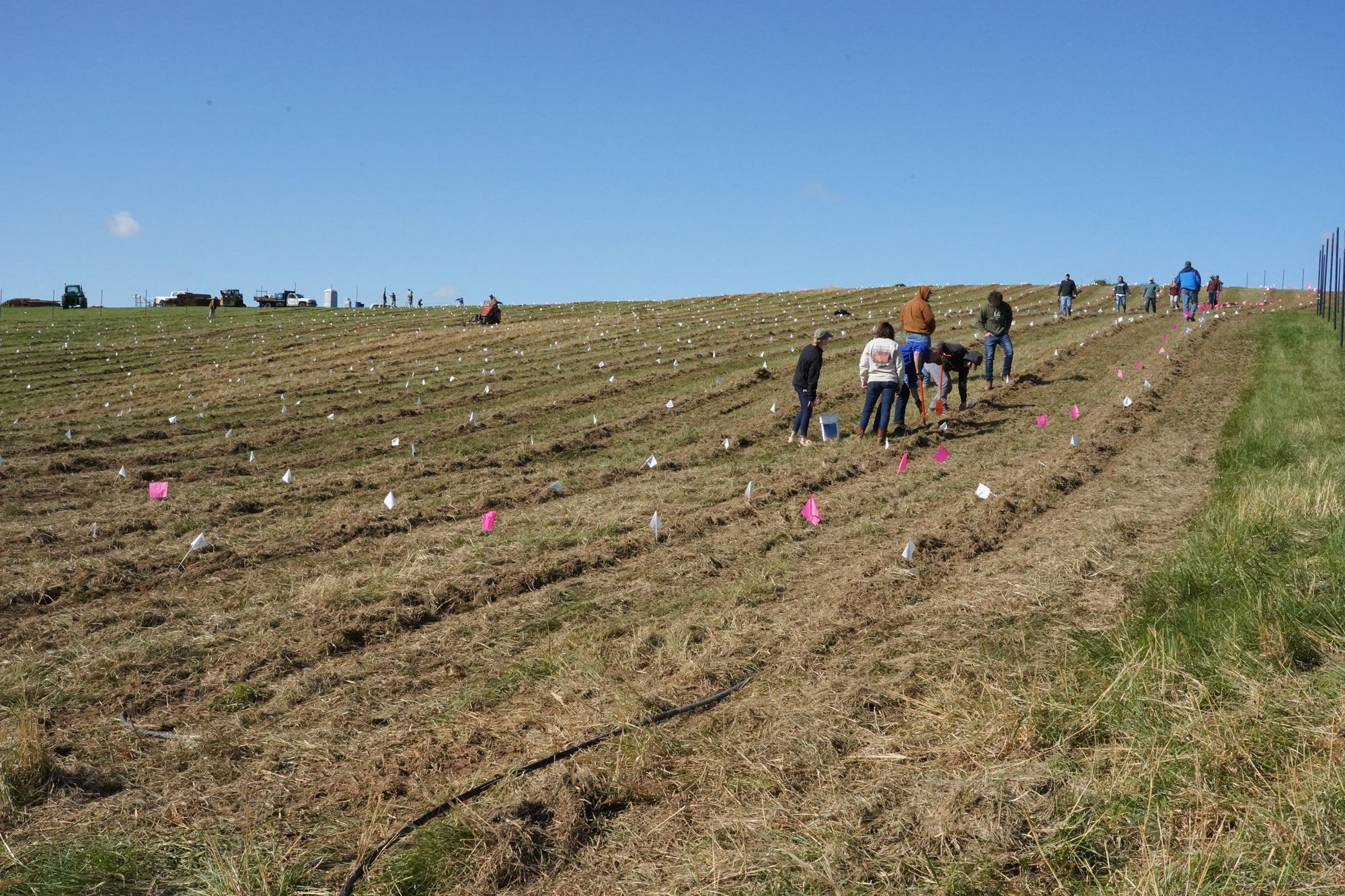A Bourbon B Corp: Inside Maker’s Mark's Sustainability Efforts
Maker's Mark knows that nature is at the core of its products, and the brand is committed to strong environmental and social practices.

Being a big company doesn’t preclude an enterprise from also being a family business. For Rob Samuels, managing director of Maker’s Mark Distillery, being the grandson of the brand’s founders, and the eighth generation of his family to make whiskey in Kentucky, means bourbon is in his blood.
And while Maker’s Mark is now part of the larger Beam Suntory group, this deep-rooted family legacy coincides with Maker’s Mark incorporating the environment into the brand’s DNA.
When Samuels’ grandparents first purchased property for Maker’s Mark around 70 years ago, “the reason they chose the site was because of nature,” he says. In particular, the property has its own water source.
Not only does a pastoral landscape make a good backdrop for visiting a distillery — Samuels says his grandmother is credited with creating bourbon tourism — but it also sits at the core of what Maker’s Mark sells.
“Ultimately, whiskey is agricultural, and the flavor comes from nature,” says Samuels. “And when it comes to ingredients and nature and understanding where the flavor comes from, pretty quickly you get to the ethics of it all.”
Sustainable Flavor

For Maker’s Mark, creating more flavorful products also means trying to improve sustainability practices.
Over the past five years, Maker’s Mark has planted experimental, modern wheat varietals on its property, explains Samuels. And the brand is working with two wheat-breeding experts to try to create ingredients that taste better while being better for the environment.
“The North Star is how do we push flavor boundaries and how do we create an ecosystem where the farming community can [grow] grain that’s at the height of flavor and that's also more sustainable,” says Samuels.
Part of that means engaging in regenerative agriculture. The company recently received a Regenified Tier 2 certification for regenerative practices on its own property, says Samuels, and the company will take those practices to the 9,000 acres in its community that supply Maker’s Mark.
And as Samuels adds, Maker’s Mark is working with “soil scientists to actually prove at the biological level that this more organism-rich soil can push flavor, have a competitive yield, and minimize the impact on nature.”
This agricultural focus also ties into innovation along the lines of grain-growing practices feeding into future releases of whiskeys, for instance.
A Force for Good

In addition to having a regenerative certification, Maker’s Mark also became a certified B Corp at the end of 2021.
While some other whiskey makers have also achieved B Corp status, Maker’s Mark claims to be the world’s largest distillery that’s a B Corp, as well as being the first in Kentucky’s Bourbon Country to achieve this certification.
Becoming a B Corp requires a high level of positive practices across areas like the environment, governance, and community. It also involves making “a legal commitment by changing their corporate governance structure to be accountable to all stakeholders, not just shareholders,” explains B Lab, the nonprofit behind B Corps.
Achieving B Corp status ties back to Maker’s Mark’s founding vision of not only creating a great product but also giving back to society and being active in the community, says Samuels.
“We want to be a brand that points out into the world and is a force for good, beyond our direct benefit,” he adds.
Making Its Mark

To be a force for good, Maker’s Mark has been engaging in several initiatives that provide environmental and societal benefits.
From an emissions standpoint, Maker’s Mark has done the work to measure its Scope 1, Scope 2, and Scope 3 emissions, as reported in its B Corp assessment. In early 2023, the brand will release an annual impact report that includes reduction targets.
Meanwhile, the business has invested in areas like a solar array that offsets the energy usage of all 50 of the brand’s warehouses. Maker’s Mark will soon extend that, with the long-term goal of being completely energy-independent, says Samuels.
While that requires an upfront investment that’s at least more expensive in the short term, “we think it's the right thing to do,” he adds.
Other projects include working with partners like the University of Kentucky (UK) for the world’s first comprehensive white oak genome mapping effort and developing the world’s largest white oak repository, as a UK press release notes. White oak is used to create barrels to age Maker’s Mark bourbon.
“It will be a research forest for the health, vibrancy, and flavor understanding of American white oak for the next 100 years,” says Samuels.
Maker’s Mark has also been expanding its glass recycling capabilities as part of its zero-landfill initiative. Rather than shipping bottles back to the manufacturer as it had in the past, the brand has been using an on-site pulverizer to create a sand-like material. That material can then be used in many ways, such as for the distillery’s on-site trail system, as well as for public garden projects.
This recycling program has also recently included a pilot partnership with Kroger to collect glass from consumers for pulverizing and then re-use, explains Samuels.
Ultimately, engaging in these types of sustainability initiatives and staying true to brand values is something that can help from both a business and moral perspective long term.
“It's very beneficial, not just because it's the right thing to do, but we think it makes us a more sustainable company into the future,” says Samuels.
Disclosure: Our parent company, JournoContent LLC, has clients involved in sustainability-related areas, among others. The owner of Carbon Neutral Copy, Jacob (Jake) Safane, has investments in sustainability-related companies, among others.
As such, conflicts of interest related to these and other investments/business relationships, even if unintended, may exist at times. Please email info@carbonneutralcopy.com if you'd like further clarification on any issues.
